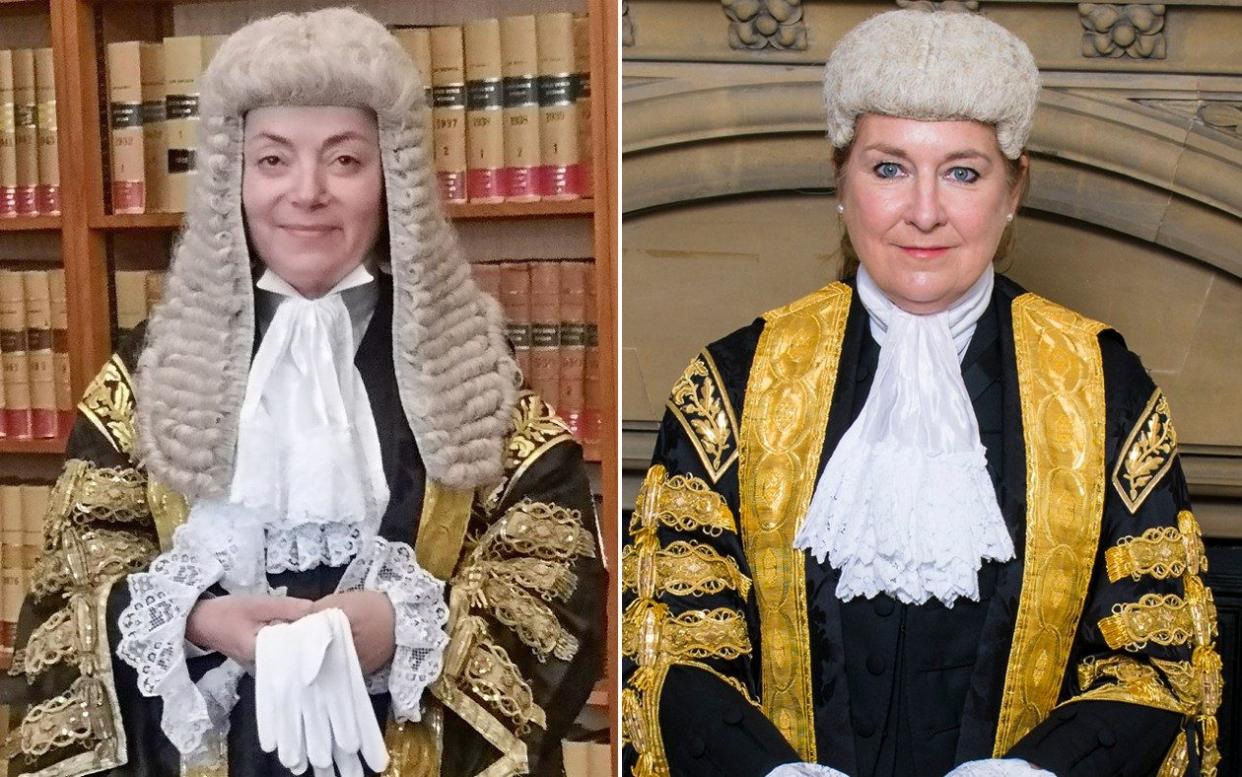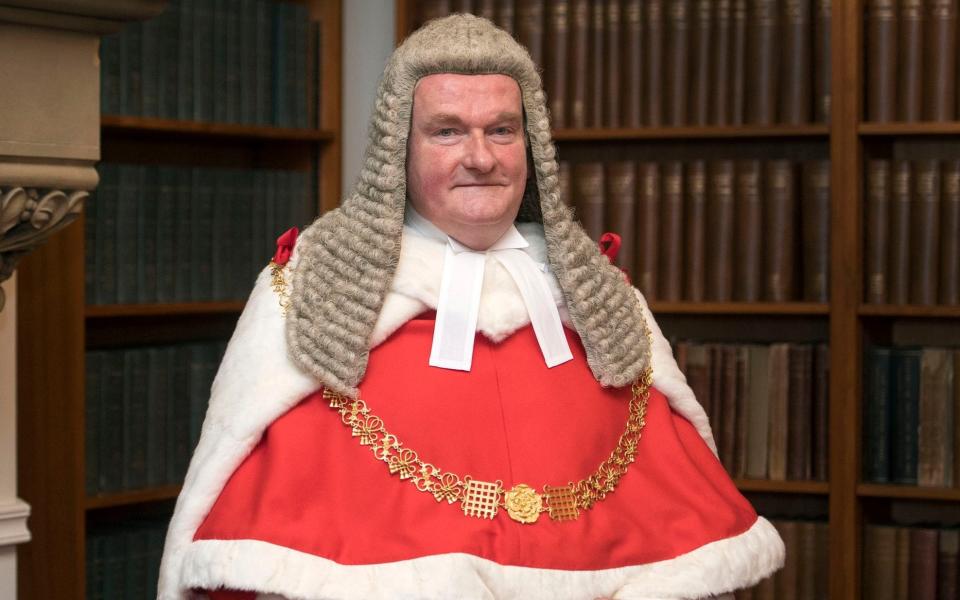Next Lord Chief Justice could be a lady – but what will we call them?

- Oops!Something went wrong.Please try again later.
- Oops!Something went wrong.Please try again later.
The title of Lord Chief Justice could become gender neutral as two women have emerged as frontrunners to become the first female holder of the post since it was created in 1268.
The position – the head of the judiciary since reforms were made in 2005 – has never been held by a woman which means that it remains written into the UK’s constitutional law as solely a male title in the form of “lord”.
Two women judges - Dame Sue Carr, an appeal judge, and Dame Victoria Sharp, president of the King’s Bench Division and the twin sister of Richard Sharp, the BBC's chairman - have been tipped for the post, which is appointed by King Charles on the recommendation of the Prime Minister Rishi Sunak and Lord Chancellor Dominic Raab.
If one of the female judges wins the race to replace Lord Burnett, the current Lord Chief Justice who is standing down in September, it will leave judicial officials with a quandary, according to legal experts.
The female victor could continue to be called “lord chief justice” without any change to UK constitutional law but this is at odds with the tradition for lower level judges to be known as Lady Justice or Mrs Justice.
It would also run counter to precedent when Elizabeth Butler-Sloss became the first ever female “Lord Justice of Appeal”, said Joshua Rozenberg, the leading legal commentator.
She was known as Lady Justice even before the law was changed to accommodate her gender. Northern Ireland has taken such an approach by giving the first woman to hold the post the title of “lady chief justice.”
The third option would be to ditch “lord” from the title and revert to the gender neutral “chief justice,” a term used in America, Ireland and New Zealand, where the male stranglehold on the top judicial job was broken in 1999 by Dame Sian Elias and has remained in female hands since.

Mr Rozenberg said he favoured the third option. “There is no need for the title of Lord or Lady once they reach the top of the tree. I suggest that Lord Burnett’s successor should simply be called Chief Justice – whoever gets the job. We can change the legislation later,” he said on his blogging platform A Lawyer Writes.
A judicial source said: “We will consider it at the appropriate time.”
Even if the female frontrunners are pipped at the post by a man, it is not a quandary judicial officials can avoid forever. Women now represent 35 per cent of all court judges and 52 per cent of tribunal judges, up respectively 11 and nine percentage points since 2014.
The speculation has been sparked by Lord Burnett’s decision to step down on September 30 2023 after six years in the job, the longest serving lord chief justice for four decades.
Dame Sue, a high court judge for a decade, quietly announced on Tuesday, she would quit as vice-chairman of the judicial appointments commission, a panel of which will decide the preferred candidate. Lord Burnett did the same before he was appointed in 2017.
As president of the King’s Bench Division, Dame Victoria is Lord Burnett’s deputy on the criminal side. The male frontrunner is said to be Sir Geoffrey Vos, who, as Master of the Rolls, is the second most senior judge in England and Wales.

